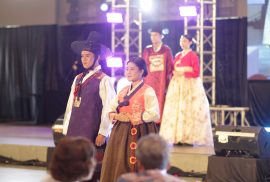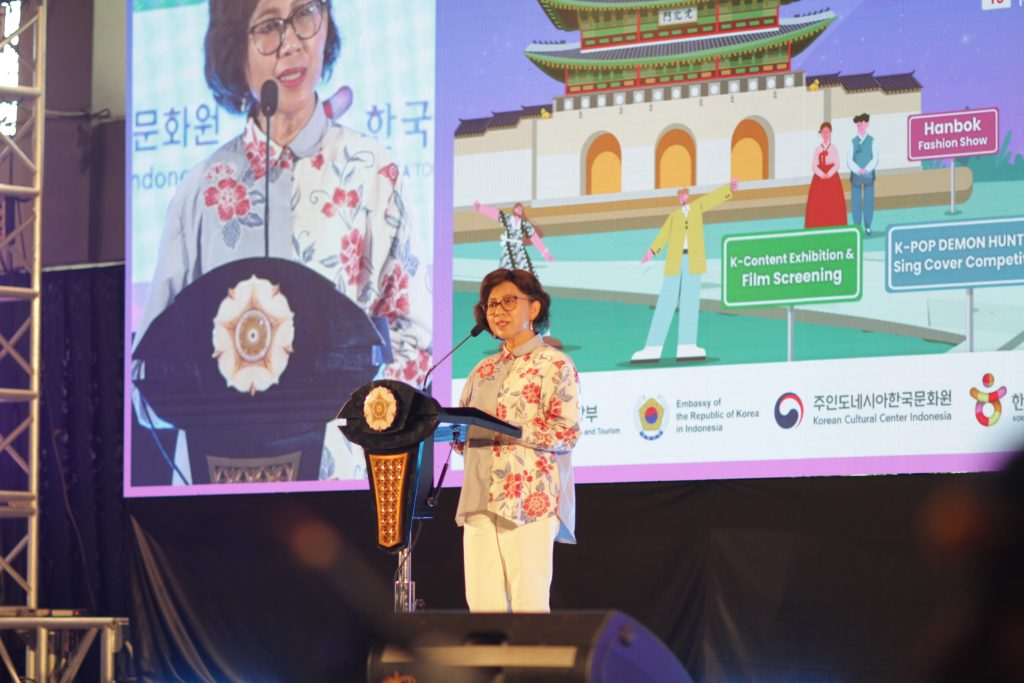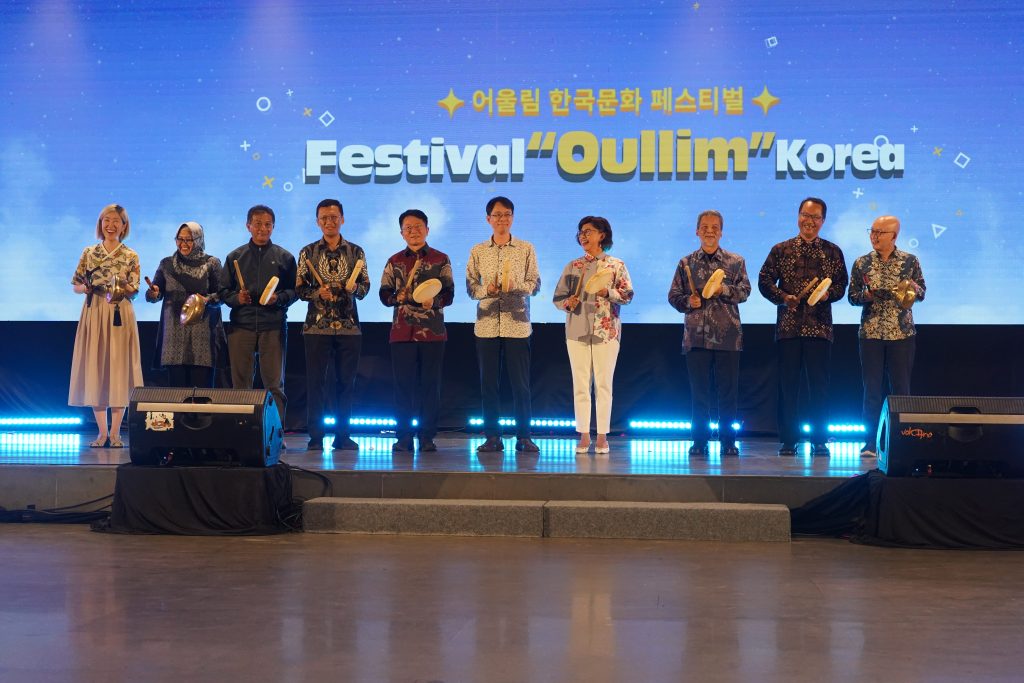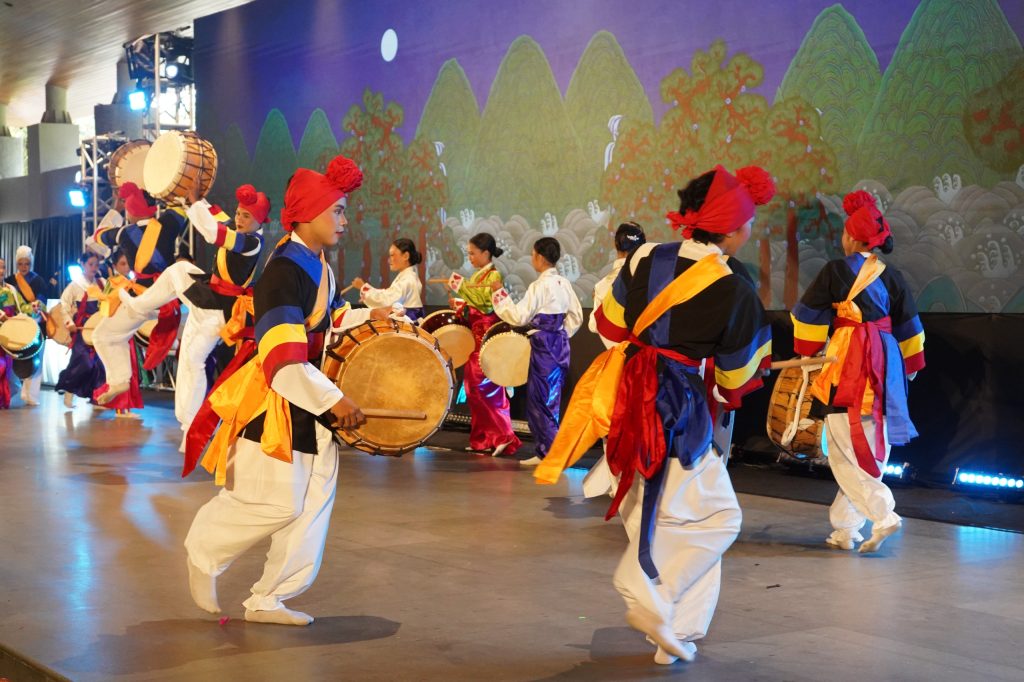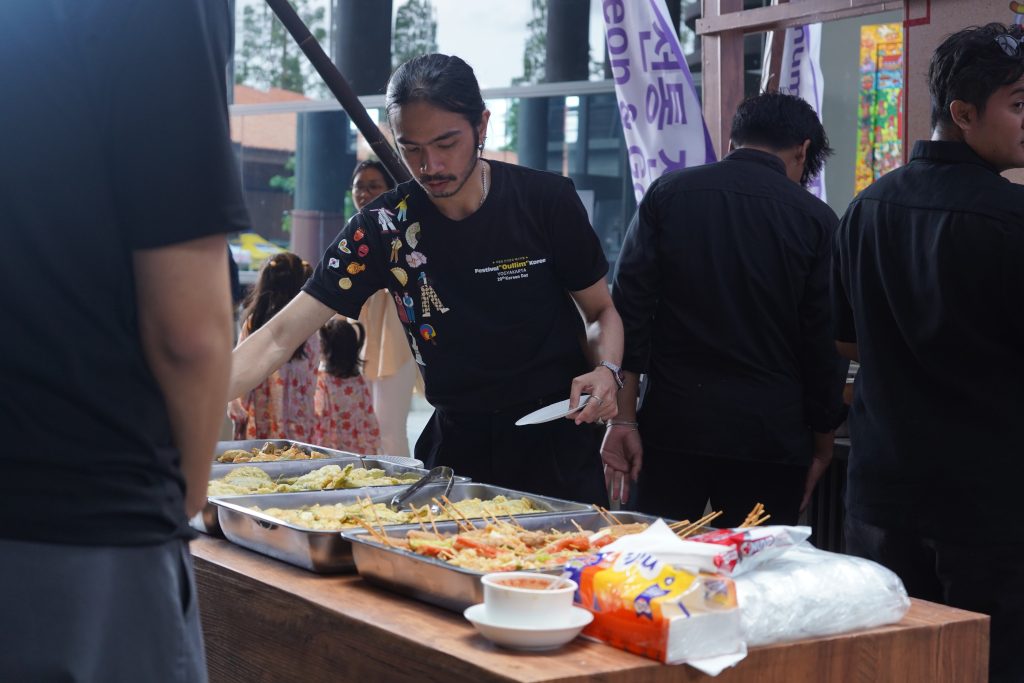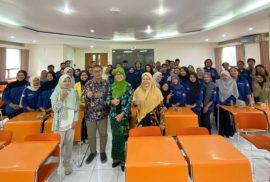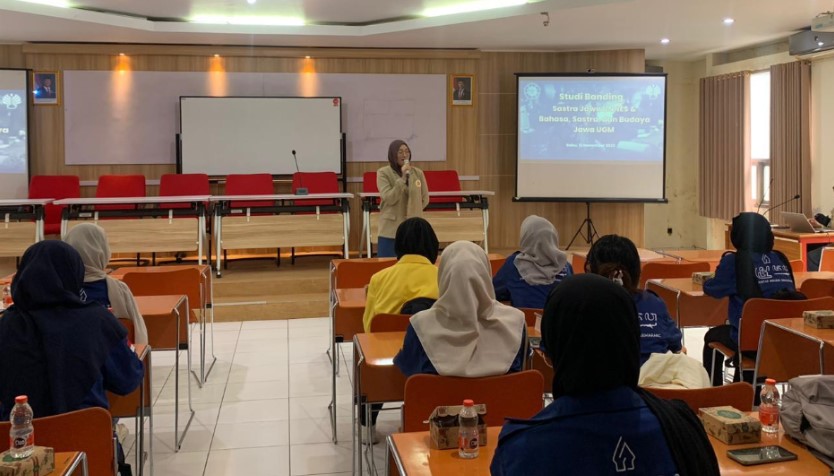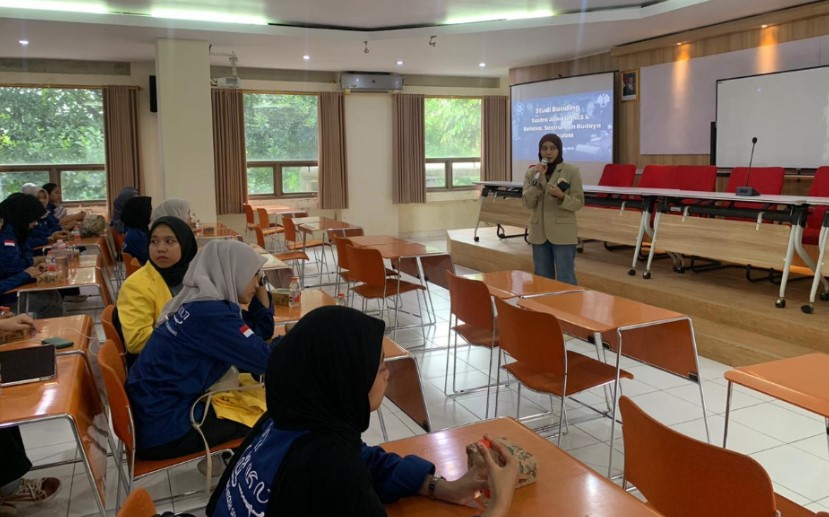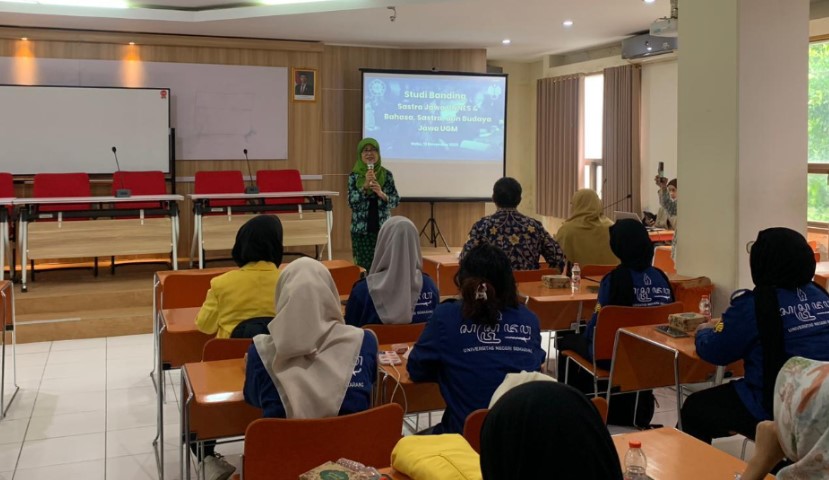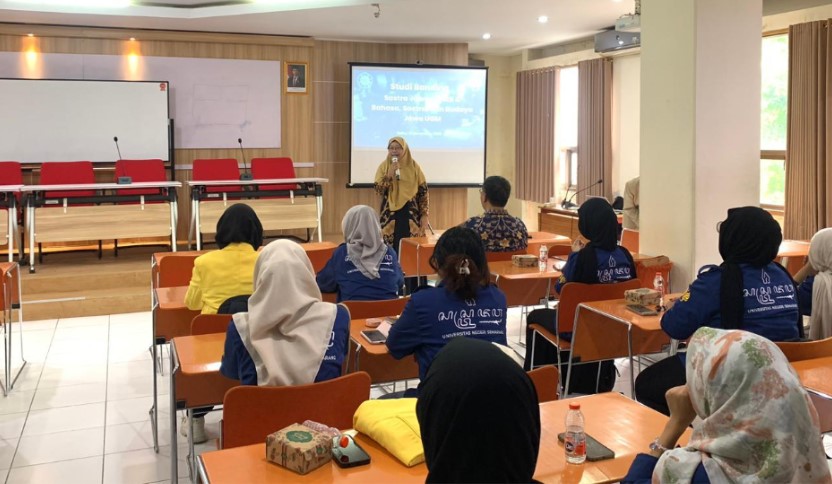The English Literature Study Program at Universitas Gadjah Mada has reaffirmed its academic excellence through its achievement in the QS World University Rankings by Subject 2025, placing in the 151–200 band globally and securing the top position in Indonesia. Within the same subject cluster, Universitas Indonesia and Universitas Pendidikan Indonesia also appeared in the global rankings.
This recognition reflects the program’s continued commitment to strengthening its academic and international standing, aligning with UGM’s mission to provide inclusive, high-quality education in support of SDG 4: Quality Education.
From the beginning of their academic journey, students follow a carefully designed series of developmental programs. After completing PPSMB, all new students participate in POPSI, an orientation initiative that offers international exposure through classes taught by lecturers currently studying abroad and sessions with global figures such as ambassadors. The program also emphasizes national identity and campus ethics, ensuring that students balance global awareness with strong civic values.
Cross-cultural learning is further encouraged through joint classes attended by students from Japan and Taiwan, enabling UGM students to build international networks and broaden their intercultural competence—an effort that resonates with SDG 17: Partnerships for the Goals.
The program also maintains a close partnership with the National University of Singapore (NUS). Through this collaboration, students can take part in short academic programs in Singapore and host NUS participants in return. These exchanges not only enrich academic experience but also serve as a platform for introducing Indonesian culture to the global academic community.
Beyond academics, the English Literature program supports student creativity through English Days, an annual theatre production. Students are responsible not only for performing but also for managing the entire event, from concept development to fundraising. This hands-on experience strengthens organizational, creative, and leadership skills, contributing to SDG 8: Decent Work and Economic Growth.
Digital literacy and media management are also nurtured. Through courses in writing and journalism, students gain the skills needed to manage the program’s website and social media channels. The program further contributes to academic assessment by developing AcEPT, UGM’s official Academic English Proficiency Test used for university admissions.
In terms of research and publication, the program’s academic journal has been open to English literature departments across Indonesia since 2024 and has recently earned a Sinta 3 accreditation, reflecting its growing scholarly impact.
The strong alumni network and contributions from retired faculty also play an important role in supporting the program’s development. Their insights and guidance help students pursue continued academic and professional achievements, reinforcing a collaborative academic environment in line with SDG 17.
Through consistent initiatives, active support from academic staff, and a culture of continuous improvement, the program sends a significant number of students to participate in the Indonesia International Student Mobility Awards (IISMA) each year. Their global experiences later inspire and benefit future cohorts.
By staying focused on its long-term vision, the English Literature Study Program at UGM demonstrates that sustained progress, collective commitment, and integration of sustainable development values naturally lead to international recognition.
Photo: freepik.com
[Public Relations of FIB UGM, Candra Solihin]


